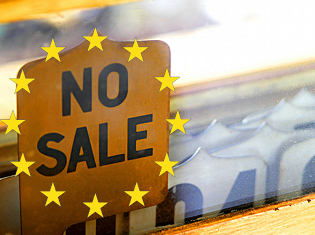 The most recent summit of gaming regulators from the UK, France, Germany, Italy, Portugal and Spain has failed to produce an agreement on sharing online poker liquidity between regulated European Union markets. Regulators in these countries have for years been seeking some type of cross-border arrangement that might offer a lifeline to poker operators struggling to turn a profit in newly regulated and heavily taxed markets. But last week’s meeting in Rome failed to produce any breakthrough on how such an arrangement might be achieved.
The most recent summit of gaming regulators from the UK, France, Germany, Italy, Portugal and Spain has failed to produce an agreement on sharing online poker liquidity between regulated European Union markets. Regulators in these countries have for years been seeking some type of cross-border arrangement that might offer a lifeline to poker operators struggling to turn a profit in newly regulated and heavily taxed markets. But last week’s meeting in Rome failed to produce any breakthrough on how such an arrangement might be achieved.
The failure to arrive at a consensus was predictable, given the lack of urgency and understanding shown by politicians with little or no gaming familiarity. The French parliament outright rejected cross-border liquidity sharing shortly before Christmas, in part because of the uninformed belief that online poker was going the way of the CB radio, pet rocks and other fads, and therefore the pursuit of extra liquidity was making beds in a burning house.
But France’s former top gaming regulator believes the “crisis” facing online poker in France is largely limited to French-regulated sites, “not against the game of poker as such.” Jean-François Vilotte, who recently stepped down from his role as ARJEL president two years ahead of schedule, told PokerNews.com that the only way to convince players to patronize French-regulated sites “is to provide players with an attractive legal offer,” be that via expanded liquidity or increasing the number of poker options available to players.
Vilotte said these goals could only be achieved if national regulations were made “more flexible” and regulators were given “more decisional powers to effectively face market changes.” During his time as ARJEL boss, Villotte suggested the punitive French tax regime could stand a haircut, “but the government thought that following our idea would bring lower tax revenues in.”
Vilote believes the cure for the struggling online poker markets in France, Italy and Spain would be to adopt “a more global approach.” But that would require overcoming the traditional reluctance of national politicians to surrender any control over what transpires within their borders – be those borders physical or digital. Vilotte suggested the pursuit of a common European tax framework was “nothing more than an illusion” and that “cultural and traditional differences” would continue to act as an impediment to the achievement of a pan-European online gambling solution.
